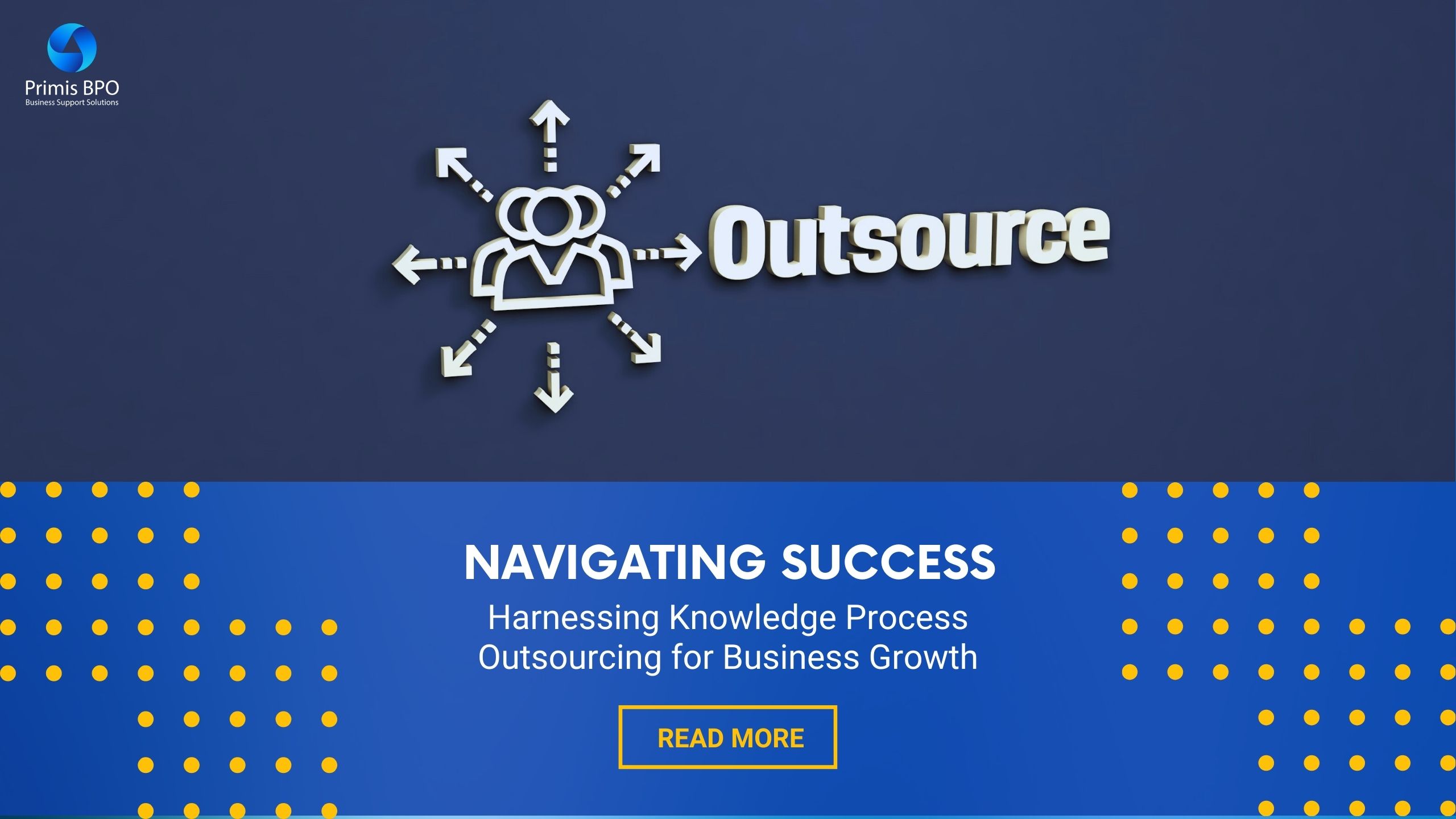
In today's highly competitive business landscape, companies continually seek methods to streamline operations and reduce expenditures to maintain a competitive edge. However, success isn't just about the product anymore; it's about the knowledge and how you leverage it.
Entering Knowledge Process Outsourcing (KPO) provides businesses with an opportunity to harness the power of specialized knowledge to transform their operations.
KPO Industry Growth and Its Impact
KPO stands for strategic outsourcing of business functions, emphasizing specialized knowledge, expertise, and experience. Essentially, KPO providers bring forth their research capabilities and industry-specific proficiency to help companies access specialized workforces not readily available in-house.
Recent market projections reveal a staggering surge in the global KPO market, rocketing to an estimated $124.3 billion by 2025.
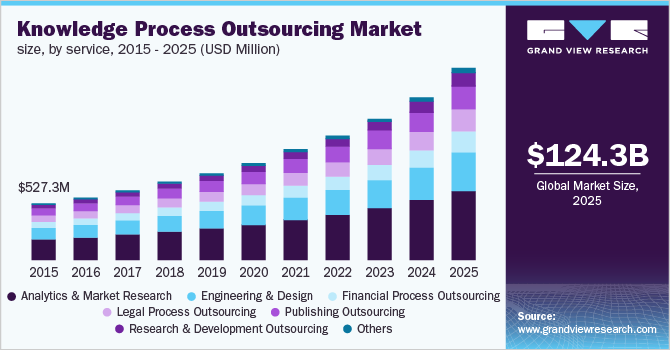
These numbers aren't mere statistics; they signify how businesses are leveraging KPO to stay ahead of the competitive curve.
This blog will explore the multifaceted benefits of KPO and how outsourcing knowledge-based solutions can help your business soar.
Where is KPO essential?
KPO excels at bridging the expertise gap in businesses, offering support to companies juggling multiple projects and lacking in-house resources. KPO unleashes the power of specialized proficiency to enhance your business operations.
For instance, imagine a financial firm based in New York utilizing KPO services and gaining access to experienced professionals and experts. These individuals thoroughly analyze the business complexities, predict trends, and streamline research and processes. As a result, the company experienced a significant decrease in operational expenses while also improving the speed and accuracy in delivering crucial insights.
This isn't just about cost-effectiveness – it's about harnessing external knowledge to elevate your internal capabilities.
5 Ways Knowledge Process Outsourcing Amplifies Business Efficiency
Strategic Process Optimization:
Empower businesses to identify, refine, and restructure significant operations. Whether it's conducting comprehensive research or taking ownership of process transformation, either way, a proficient KPO provider significantly enhances productivity within specific domains, fostering efficiency.
Knowledge and Skill Gap Mitigation:
Offer targeted solutions to improve internal processes or talent deficiencies. Moreover, their ability to conduct thorough assessments of a company's landscape helps unearth areas needing enhancement, thereby filling in the missing pieces to fortify internal capabilities.
Responsiveness and Adaptability Enhancement:
Allow companies to maintain flexibility and agility in response to industry fluctuations and market demands. Leveraging external specialists ensures the swift incorporation of new initiatives without prolonged hiring procedures. Additionally, KPO specialists enable faster adaptation to changes, providing a competitive edge.
Overall Productivity Improvement:
Impact overall company productivity by outsourcing and optimizing critical processes. By refining specific areas through specialized outsourcing, businesses free up internal resources, allowing redirection of time, funds, and manpower toward other vital aspects.
Cross-Team Collaboration:
Drive enhanced efficiency across the organization by fostering seamless cross- team collaboration. Their expertise encourages cohesive interaction, enabling collective strengths to tackle challenges efficiently. This collaborative approach not only boosts productivity but also helps the organization progress toward its goals effectively.
A Step-by-Step Approach to Knowledge Process Outsourcing
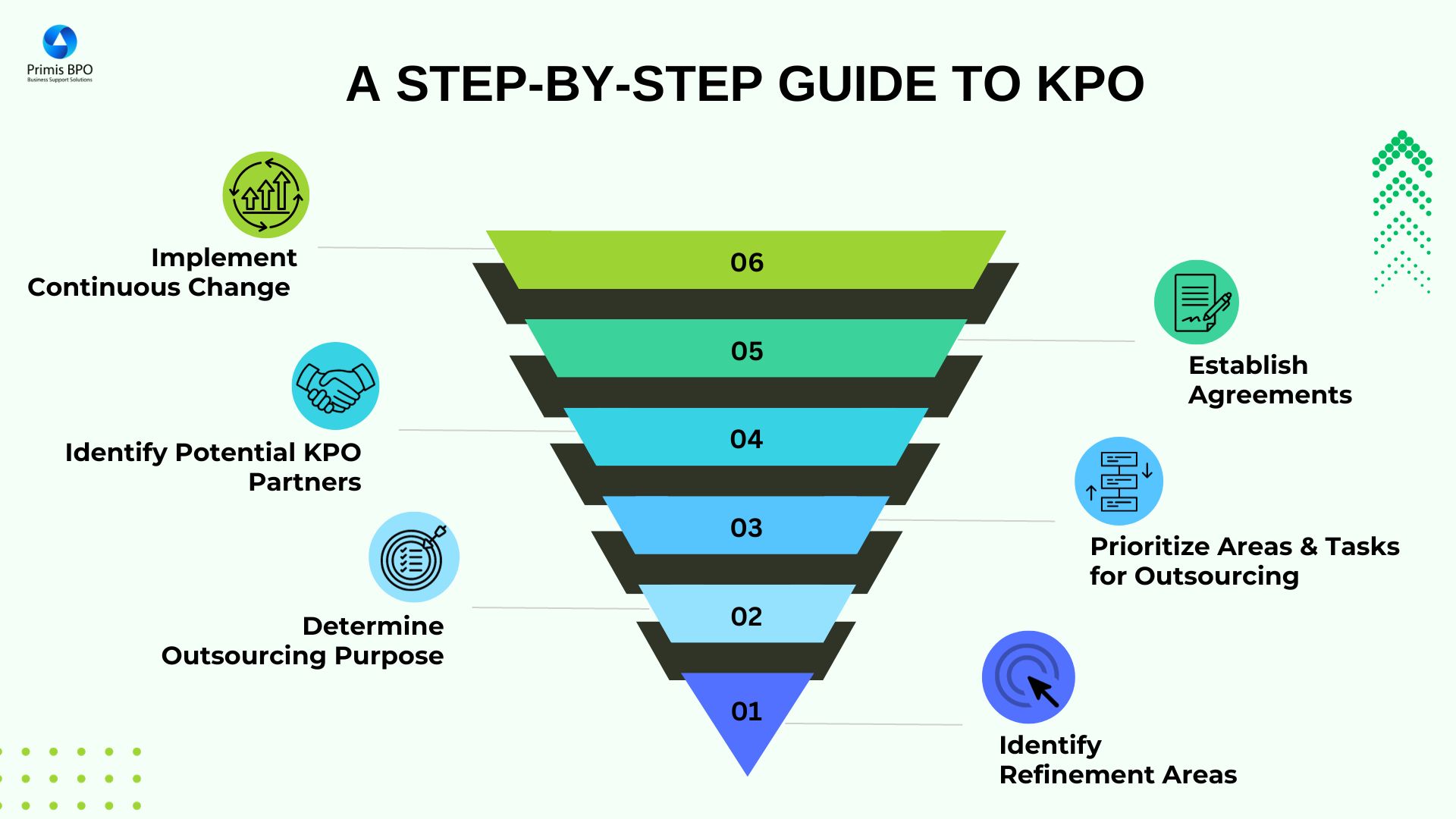
1- Identify areas for refinement:
Improve your existing internal knowledge management methods by identifying areas for refinement and implementing best practices and technology upgrades.
2- Determine the purpose for outsourcing:
Define the aims behind opting for KPO highlighting objectives and anticipated outcomes aligned with cost-efficiency, expertise access, scalability, or core competency focus.
3- Prioritize areas and tasks for outsourcing:
Conduct a comprehensive analysis to pinpoint specific domains or tasks within knowledge management suitable for outsourcing. Prioritize these based on their impact on business objectives, complexity, and potential benefits.
4- Identify potential KPO partners:
Research and pinpoint potential KPO service providers or partners matching your requirements and industry standards.
5- Establish agreements and oversee KPO relationships:
Set clear and comprehensive terms encompassing service level agreements (SLAs), timelines, and key performance indicators (KPIs). Actively manage communication and collaboration with the outsourcing partner to ensure alignment and quality deliverables.
6- Implement continuous change:
Deploy a robust change management strategy to adapt to evolving knowledge processes. Continuously monitor and manage knowledge flows, ensuring alignment with shifting business needs and objectives.
To Wrap Up
Embracing KPO can be significant for businesses seeking enhanced efficiency and productivity. The strategic utilization of KPO streamlines operations, drives innovation, and augments decision-making. This outsourcing approach not only optimizes costs but also enables businesses to adapt swiftly in a dynamic market.
Get in touch with us to outsource your knowledge-based processes seamlessly.
Recent Blogs

Optimizing Auto Insurance Underwriting Through Outsourced AI-Driven Risk Intelligence
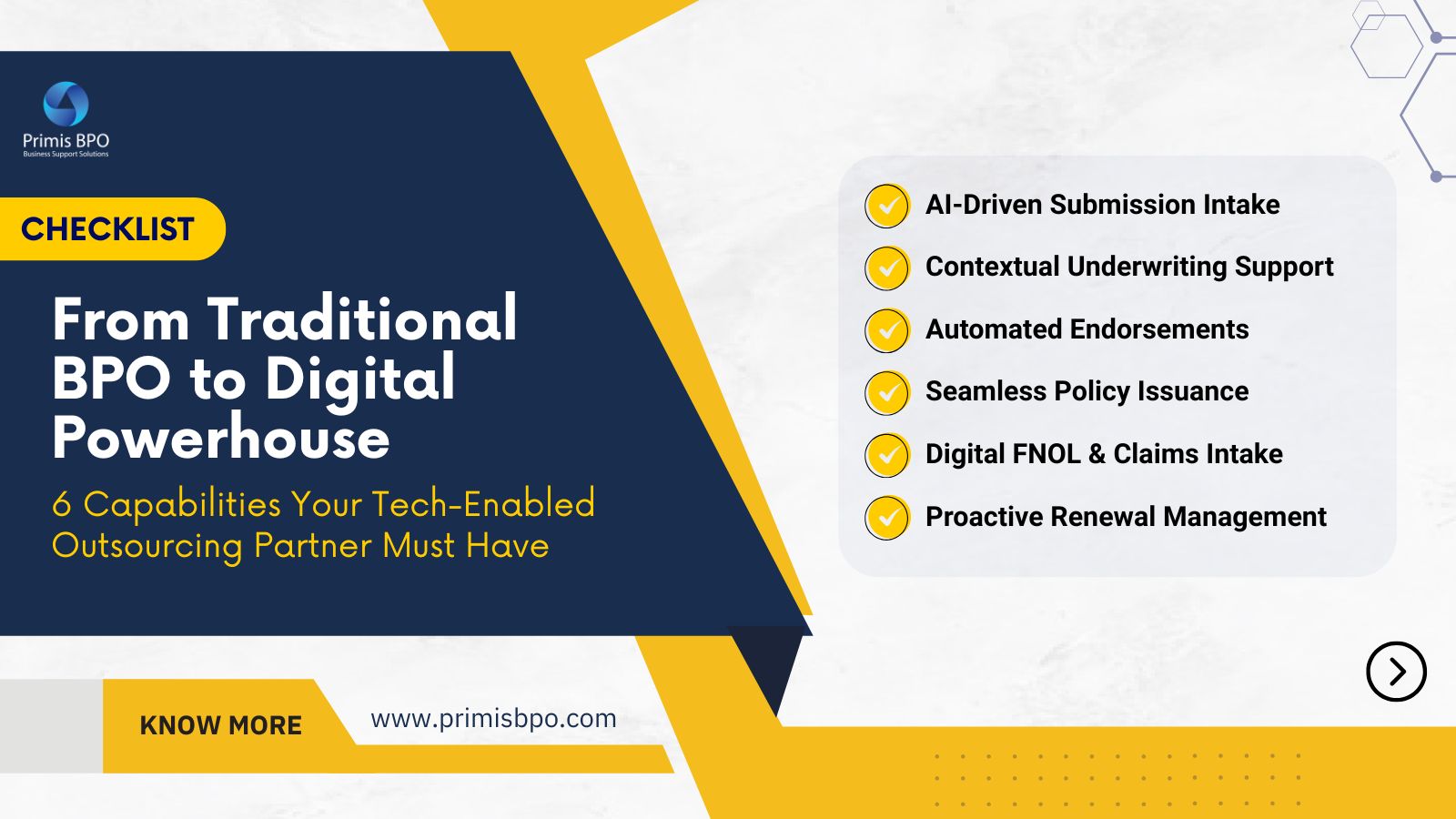
[Checklist] From Traditional BPO to Digital Powerhouse: 6 Capabilities Your Tech-Enabled Outsourcing Partner Must Have

Outsourcing AI-Enabled Property Risk Analysis
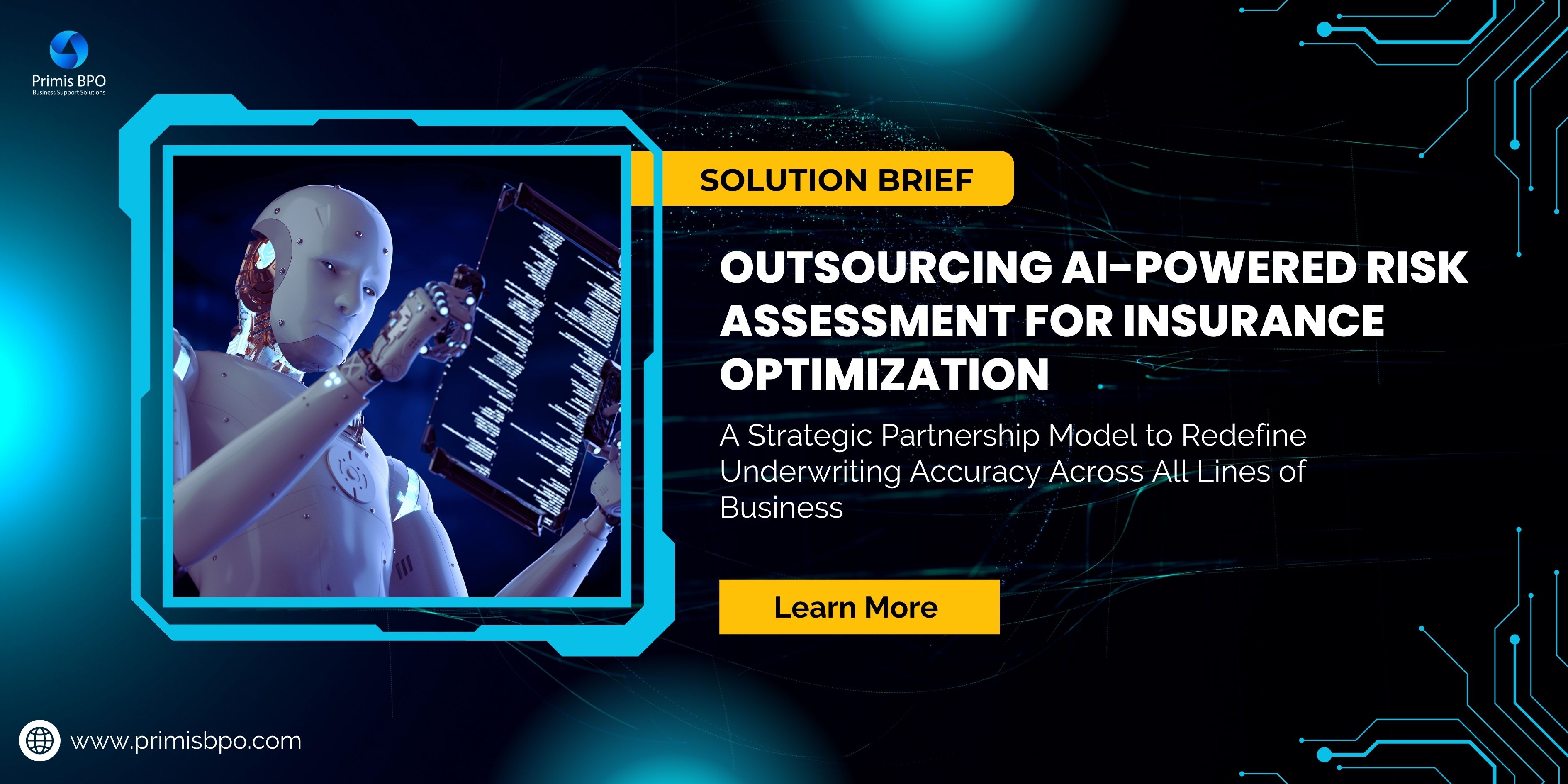
Outsourcing AI-Powered Risk Assessment for Insurance Optimization

Augmented Underwriting: When Human Expertise Meets Digital Intelligence